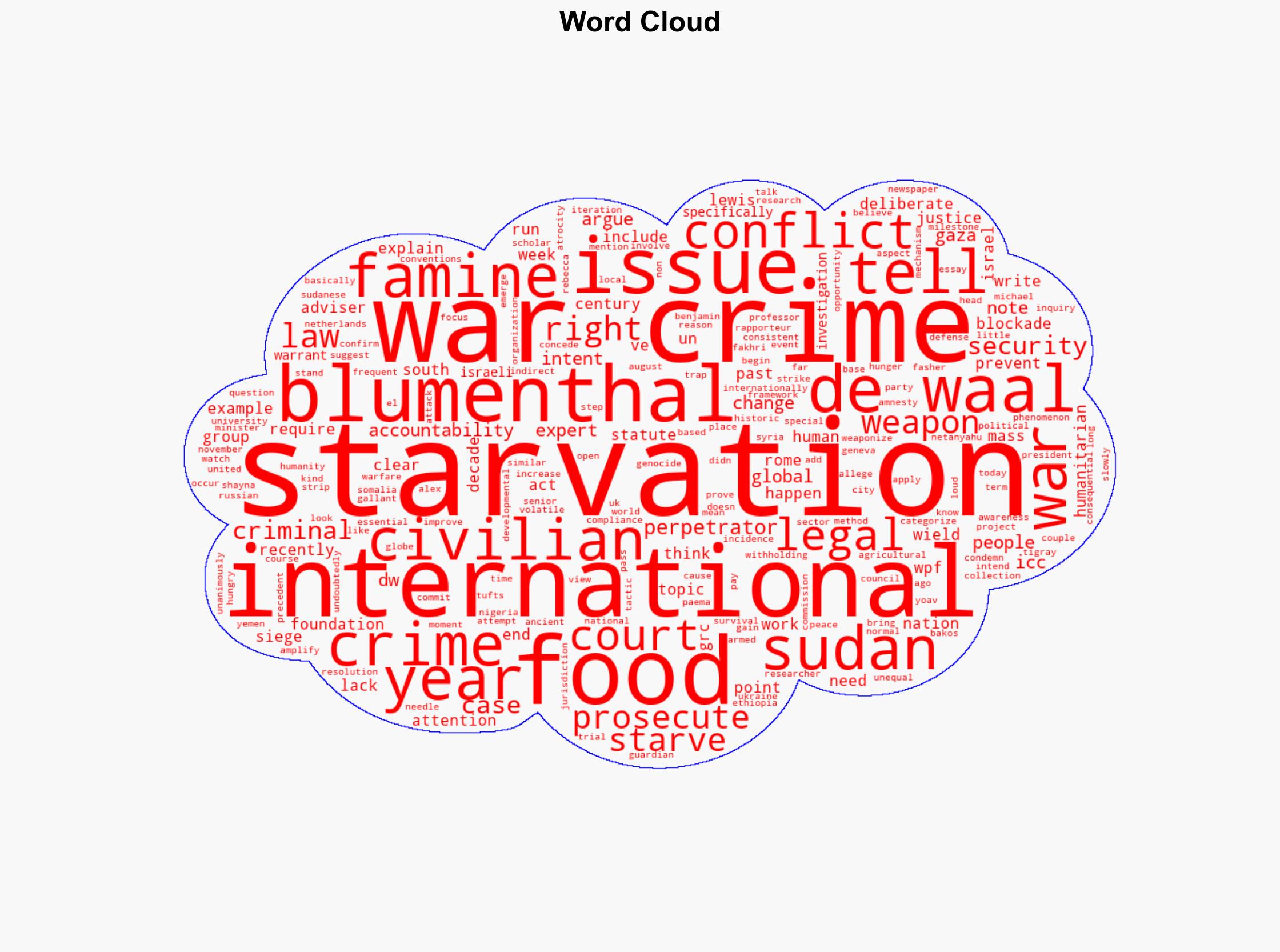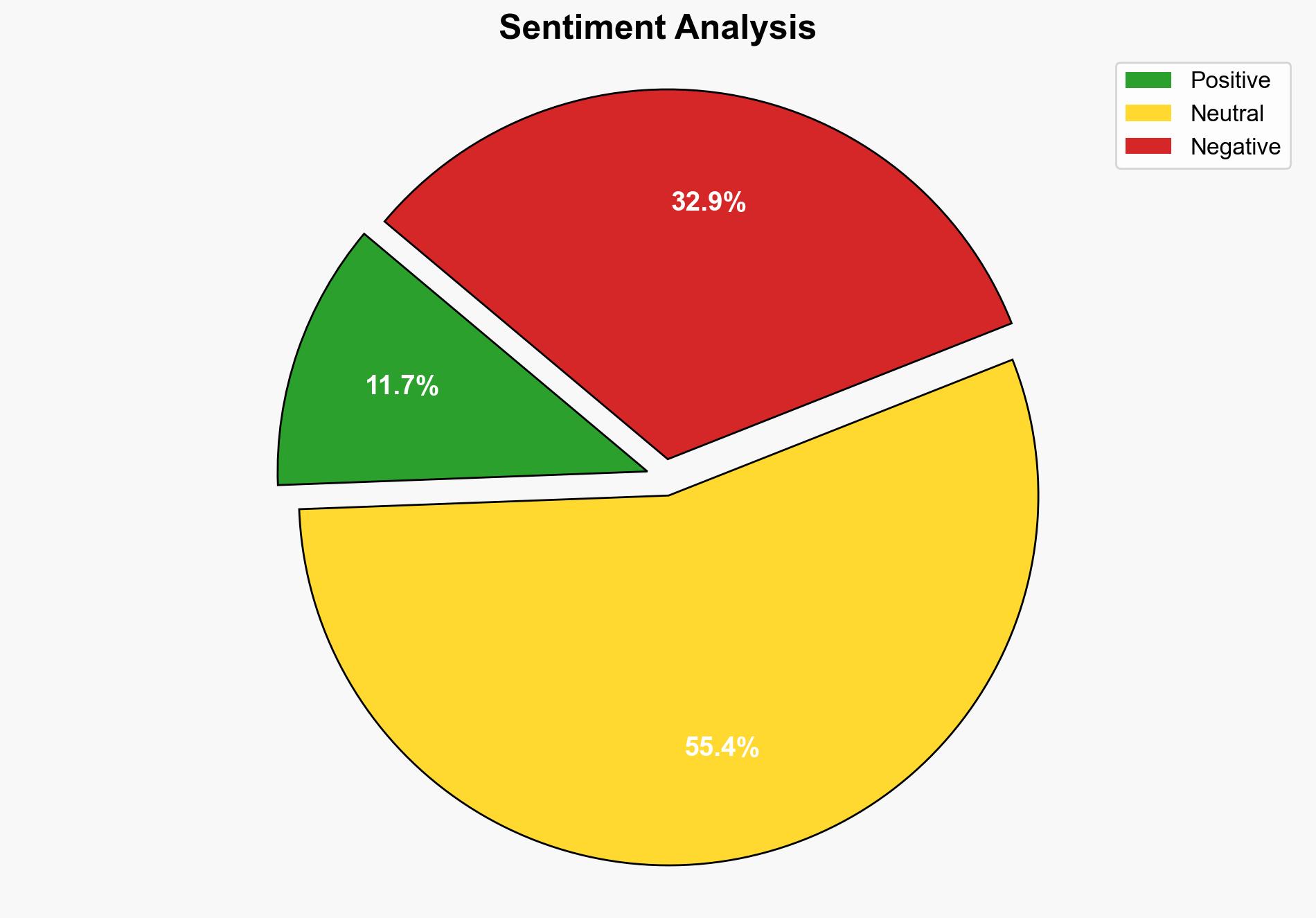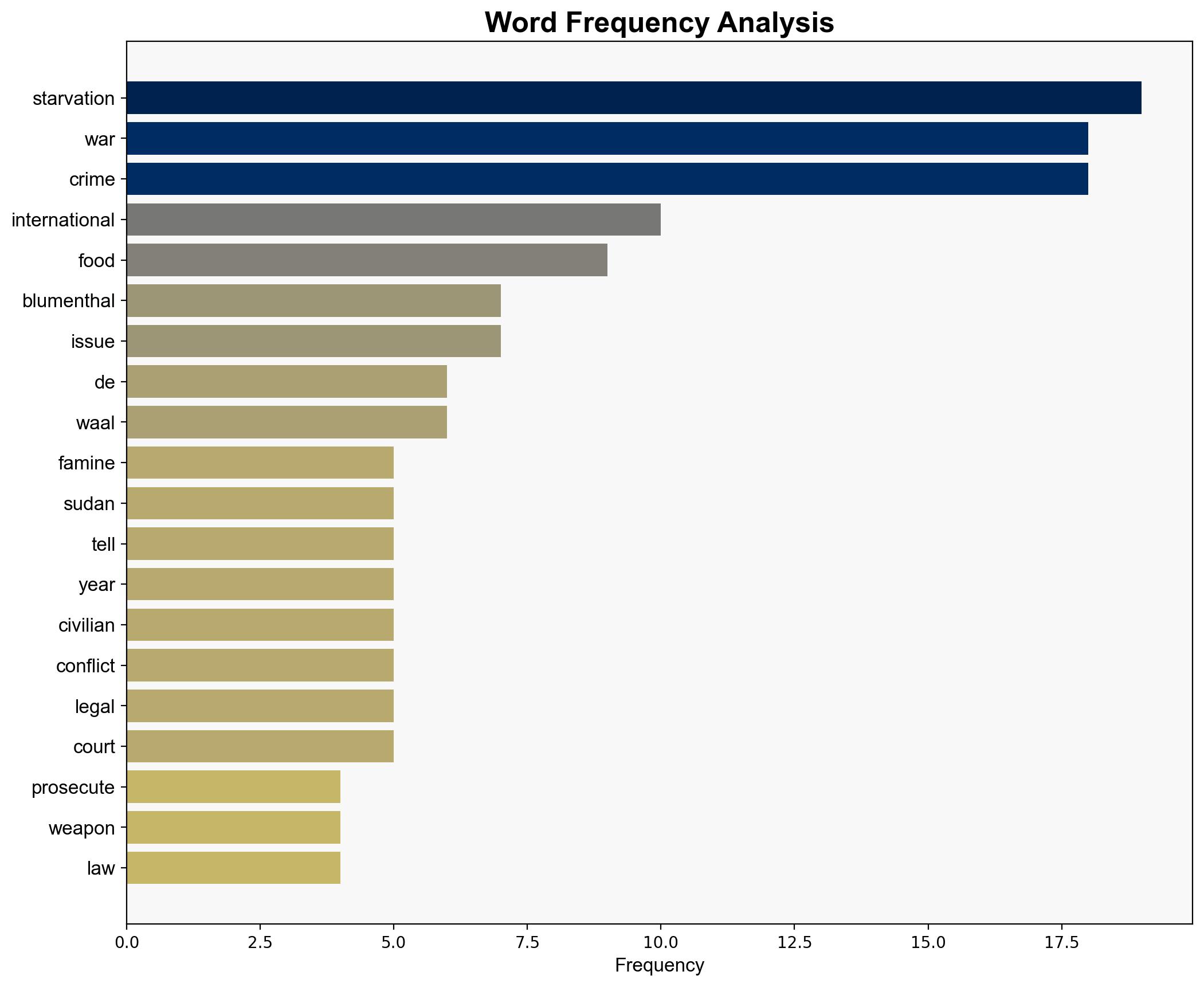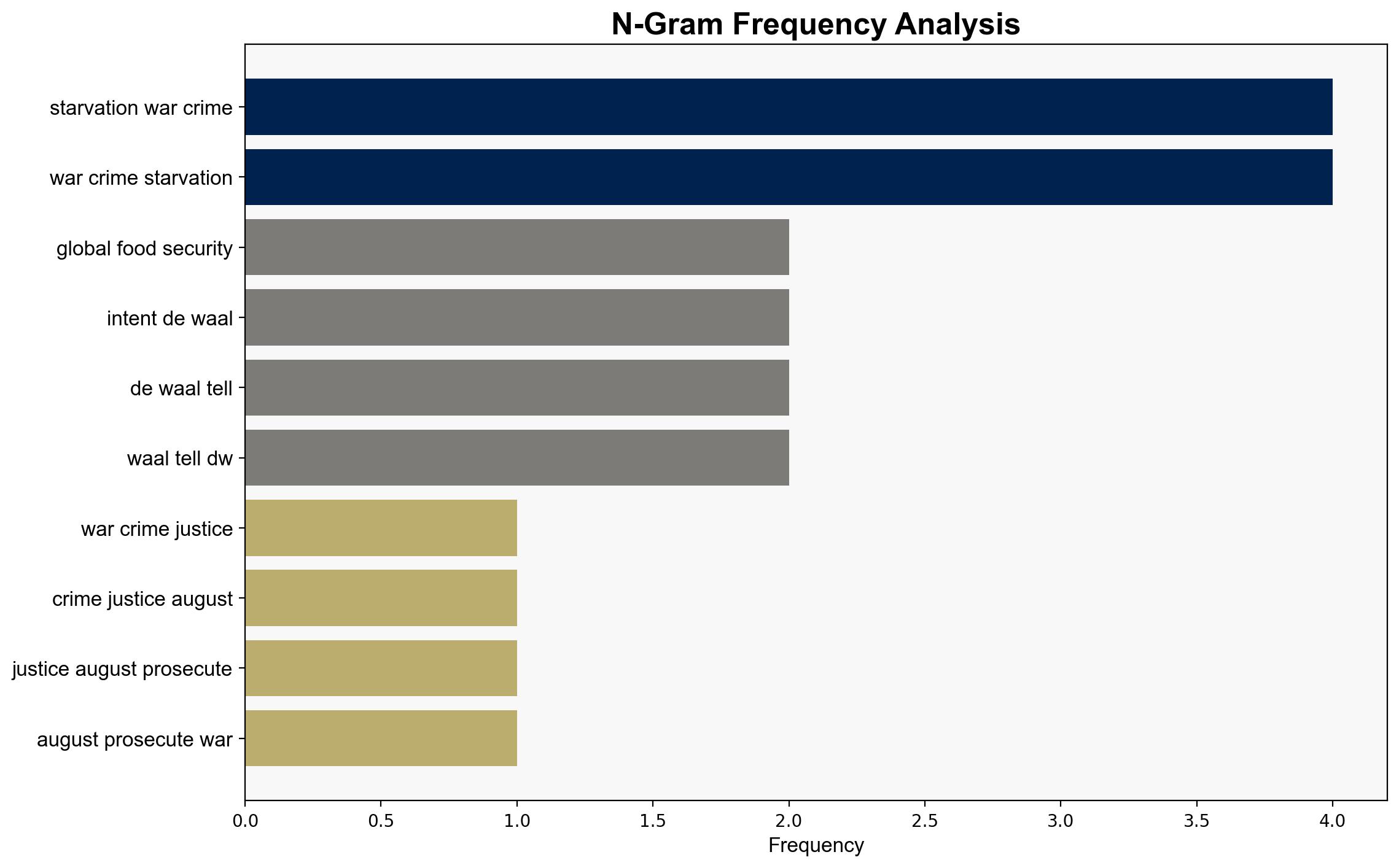Starvation is a war crime but will justice ever be done – DW (English)
Published on: 2025-08-15
Intelligence Report: Starvation is a war crime but will justice ever be done – DW (English)
1. BLUF (Bottom Line Up Front)
The strategic judgment is that while there is increasing recognition of starvation as a war crime, the likelihood of consistent prosecution remains low due to legal and political challenges. The most supported hypothesis is that international legal frameworks will gradually evolve to address starvation as a war crime, but enforcement will be inconsistent. Confidence Level: Moderate. Recommended action includes advocating for stronger international legal mechanisms and increased diplomatic pressure on states implicated in using starvation as a weapon.
2. Competing Hypotheses
Hypothesis 1: International legal systems will adapt to prosecute starvation as a war crime effectively, leading to increased accountability and deterrence.
Hypothesis 2: Despite legal recognition, political and logistical challenges will prevent effective prosecution of starvation as a war crime, resulting in continued impunity.
Using the Analysis of Competing Hypotheses (ACH) 2.0, Hypothesis 2 is better supported due to historical precedent of limited enforcement and the complexity of proving intent in starvation cases.
3. Key Assumptions and Red Flags
Assumptions include the belief that international legal bodies have the capacity and willingness to enforce new statutes. A red flag is the lack of precedent in prosecuting starvation, which may hinder judicial processes. There is also a potential cognitive bias in assuming that legal recognition will translate into practical enforcement.
4. Implications and Strategic Risks
If starvation continues to be used as a weapon without accountability, it could lead to increased humanitarian crises and destabilization in affected regions. This may exacerbate geopolitical tensions and create refugee flows, impacting global security. The failure to prosecute could embolden other actors to use similar tactics.
5. Recommendations and Outlook
- Strengthen international legal frameworks and support initiatives like the Rome Statute amendments to include starvation in non-international conflicts.
- Encourage diplomatic efforts to isolate and sanction states using starvation as a weapon.
- Scenario Projections:
- Best Case: Comprehensive international legal reforms lead to successful prosecutions and deterrence.
- Worst Case: Continued impunity results in widespread humanitarian crises and geopolitical instability.
- Most Likely: Incremental legal progress with sporadic enforcement and mixed deterrence outcomes.
6. Key Individuals and Entities
Shayna Lewis, Michael Fakhri, Rebecca Bakos Blumenthal, Alex de Waal.
7. Thematic Tags
national security threats, international law, humanitarian crises, geopolitical stability





